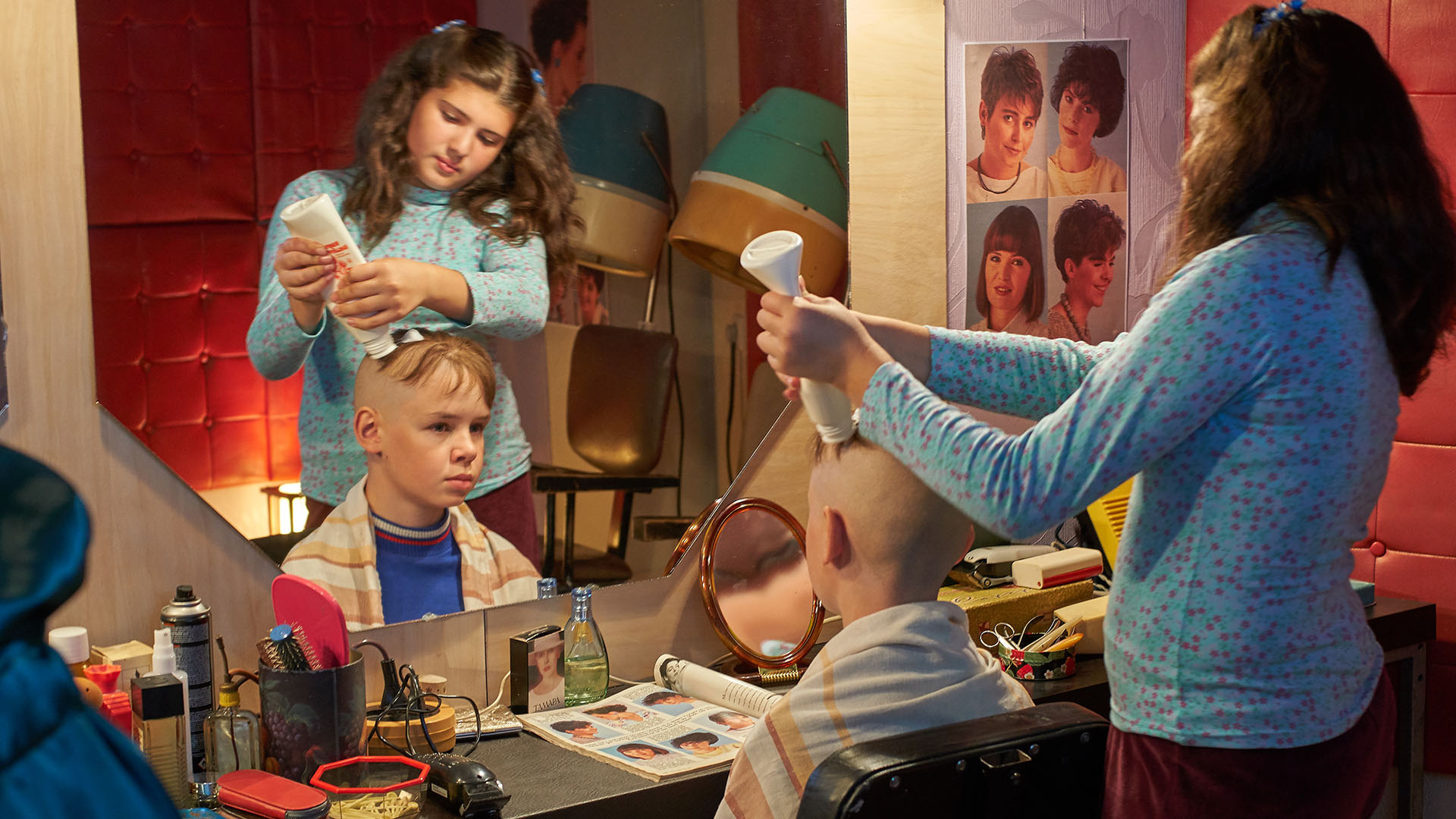
From the aversion of over-romanticizing to the right socks and plastic bags that make all the difference. Interview with three filmmakers and an actor.
There is no such thing as a perfect recipe for recreating an era on film. Rather it is about a feeling, a memory the film seeks to identify. That, when the audience sees the film in the cinema, they look at it and think: yes, that’s it! That is exactly how it was. Director Lauri Randla of Goodbye, Soviet Union, art director Eugen Tamberg of On the Water, and producer Guntis Trekteris and actor Davis Suharevskis of The Sign Painter agree.
The three films, which are Estonian-Finnish, Estonian, and Latvian productions, talk about the time of (Soviet) occupation in the Baltics. On the Water takes place in early eighties’ Estonia, Goodbye, Soviet Union in the country at the very end of the same decade, while The Sign Painter takes us back to the early forties – to a small Latvian village caught in the whirlwind of quickly changing regimes.
We sat down with the filmmakers to discuss the creation of a period on film. From the aversion of over-romanticizing to the right socks and plastic bags that make all the difference.
Lauri: “For me, part of making it feel real, was to make it feel real for the kid. As the film is based on my own experiences, it is a very subjective experience of the times.
Some things are also based on fantasies I had as a kid, which I could now bring to life in the film. Like the toy car; it was a toy I wished I had. In reality, I stole it from the neighbors’ kid. The police stopped me and asked me for my driver’s license in a joking way, just as they do in the film.
When they found out I had stolen it, they brought me back to my grandmother and she talked me out of trouble by saying: nothing can be stolen in the Soviet Union, because ownership does not exist.”
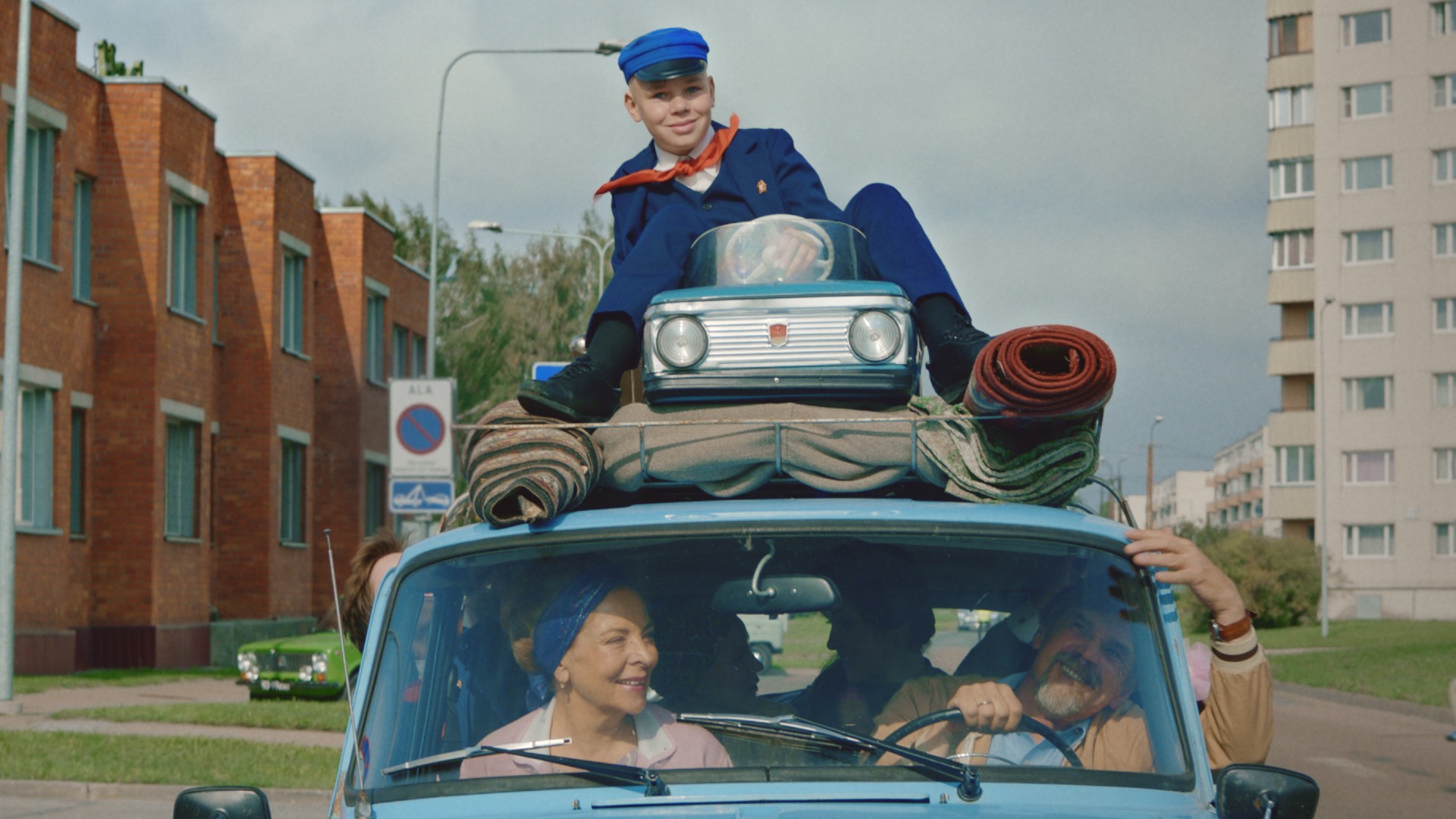
Still from Goodbye, Soviet Union
Eugen: “I like that this viewpoint did not make the film too political. It is more about growing up, and about people surviving from day to day. The young boy does not long for anything political. His biggest longing is that for a fatherly figure.”
Eugen: “Yes. I don’t like to overly dramatize Soviet times. I have an aversion to youngsters, who tend to romanticize this era, appropriating it in their fashion for example. I lived in those times. It was both tough and cruel. And I believe a film about the Soviet era should be as directly about what we saw and experienced, instead of making it a spectacle.”
Lauri: “I remember that I once went to a fishing competition in Denmark, and all the Danes I encountered seemed to have this idea that in the Soviet Union, the KGB was always on our doorstep. The idea of making films about this era, for me, is not to romanticize, but the opposite: to show that even in that era we had a day-to-day life as well. That it wasn’t all about the KGB and politics.”
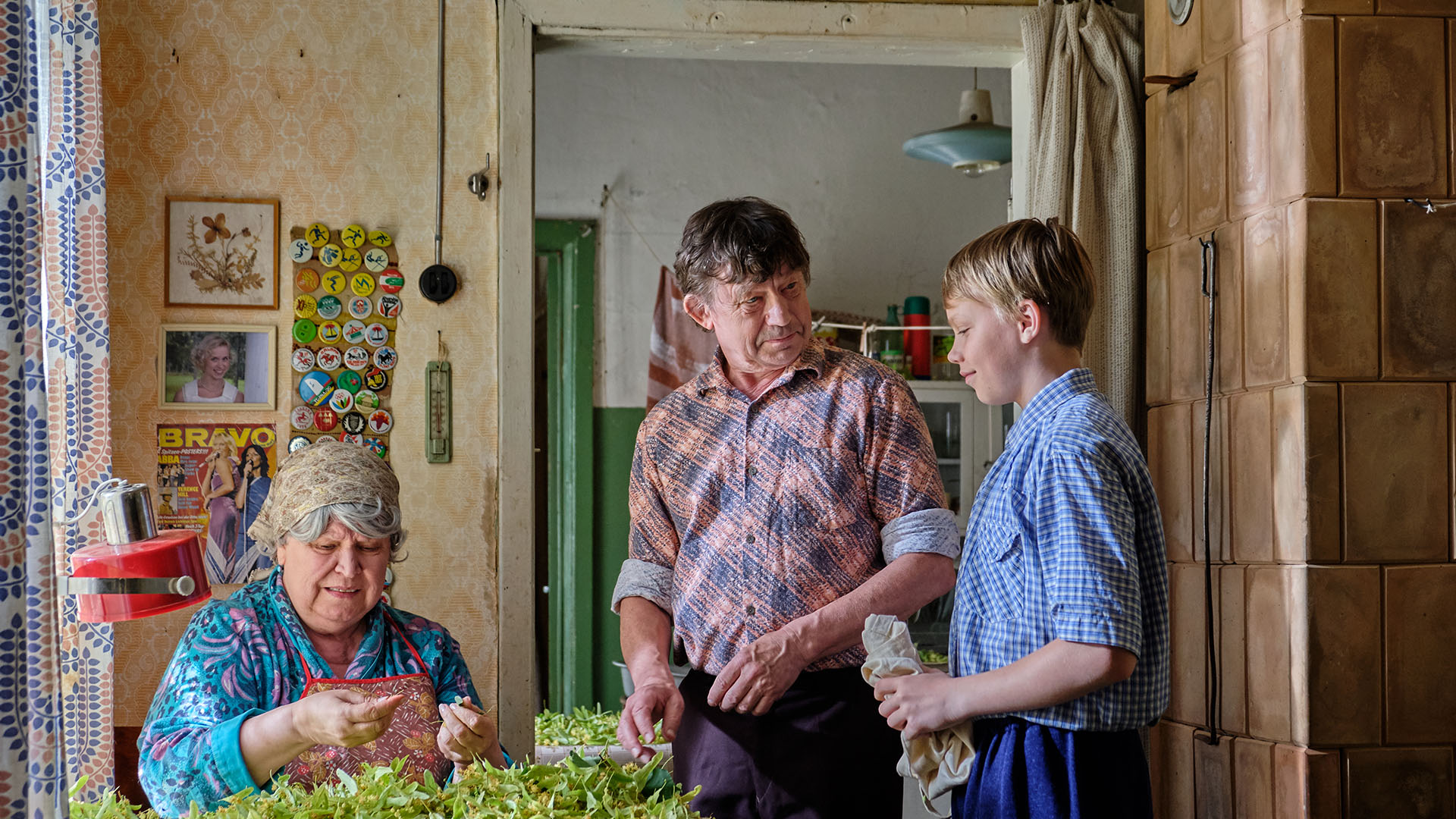
Still from On the Water
Guntis: “Very true! Imagine the example of North-Korea. I hope we can assume that North-Koreans are capable of love and everyday relationships as well…”
Guntis: “It depends on the genre. If you’re making a comedy about Soviet times, I think a certain amount of romanticizing is allowed and necessary. You have to exaggerate some elements, for the sake of humor.”
Lauri: “Subtext is also very important. Take Jojo Rabbit. Despite it being a funny film, it has a subtext that very seriously critiques the Nazi regime. But the art of humor is always delicate. Some people like slapstick, others are easily offended.”
Eugen: “Some situations also seem funny when depicting them later, while they were very normal at the time. For example; at a 1950’s birthday party it would be totally normal – and not funny - for a communist and someone from the SS sitting at the same table and celebrating. Only when we put it on film now, we can perceive an absurdity in it.”
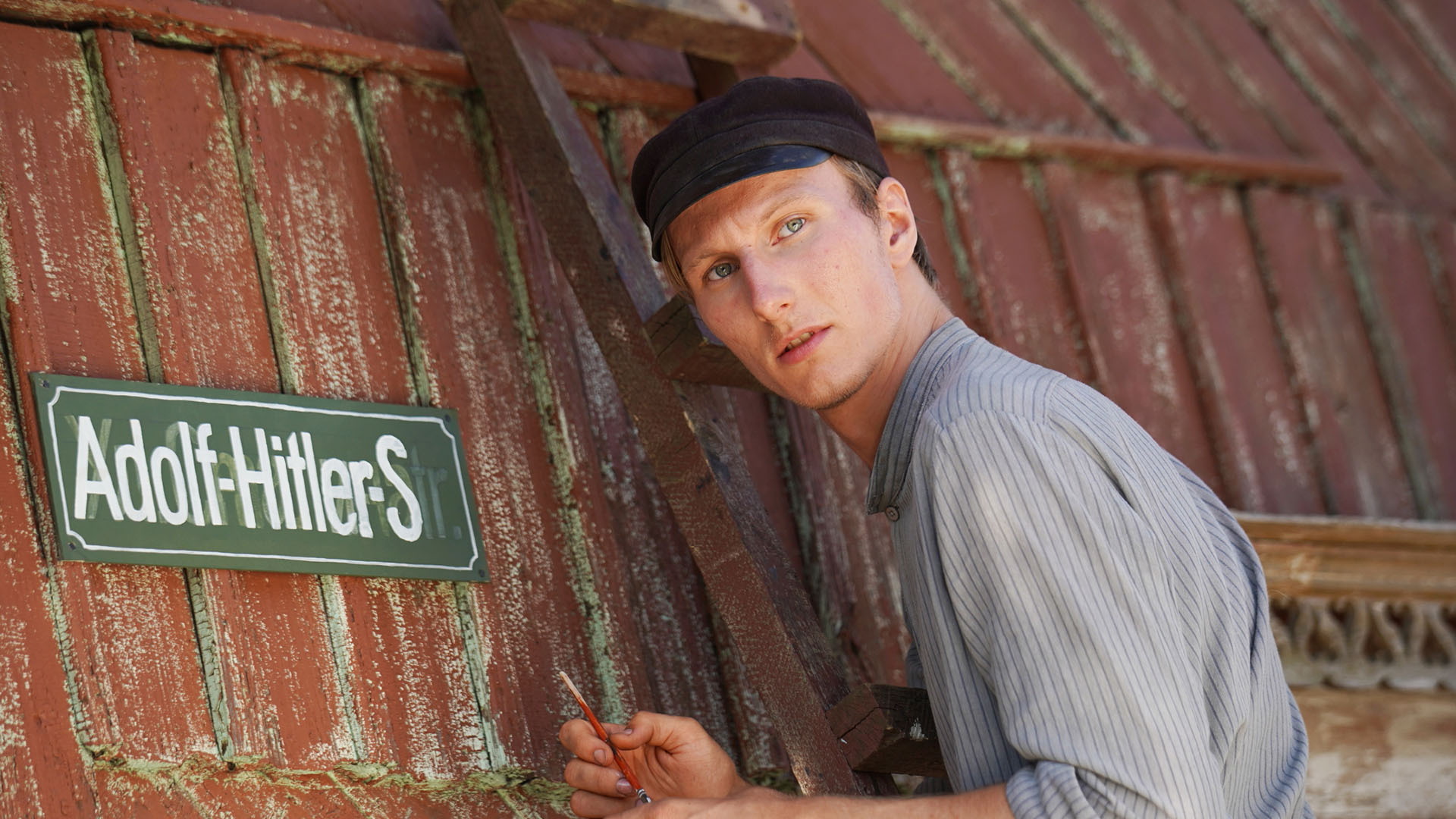
Still from The Sign Painter
Eugen: “For me, as the set designer and location manager, the biggest challenge was to find a suitable location. There are still many little villages that have not wholly changed since the Soviet era. But it is really hard to find a place where a few crucial things have not changed. You have to be very careful that there is no modern architecture, vehicles, street signs, or other elements visible from any of the many camera viewpoints.
Set design-wise, a lot is in the details. For us, one such important small element was using the right plastic bags.”
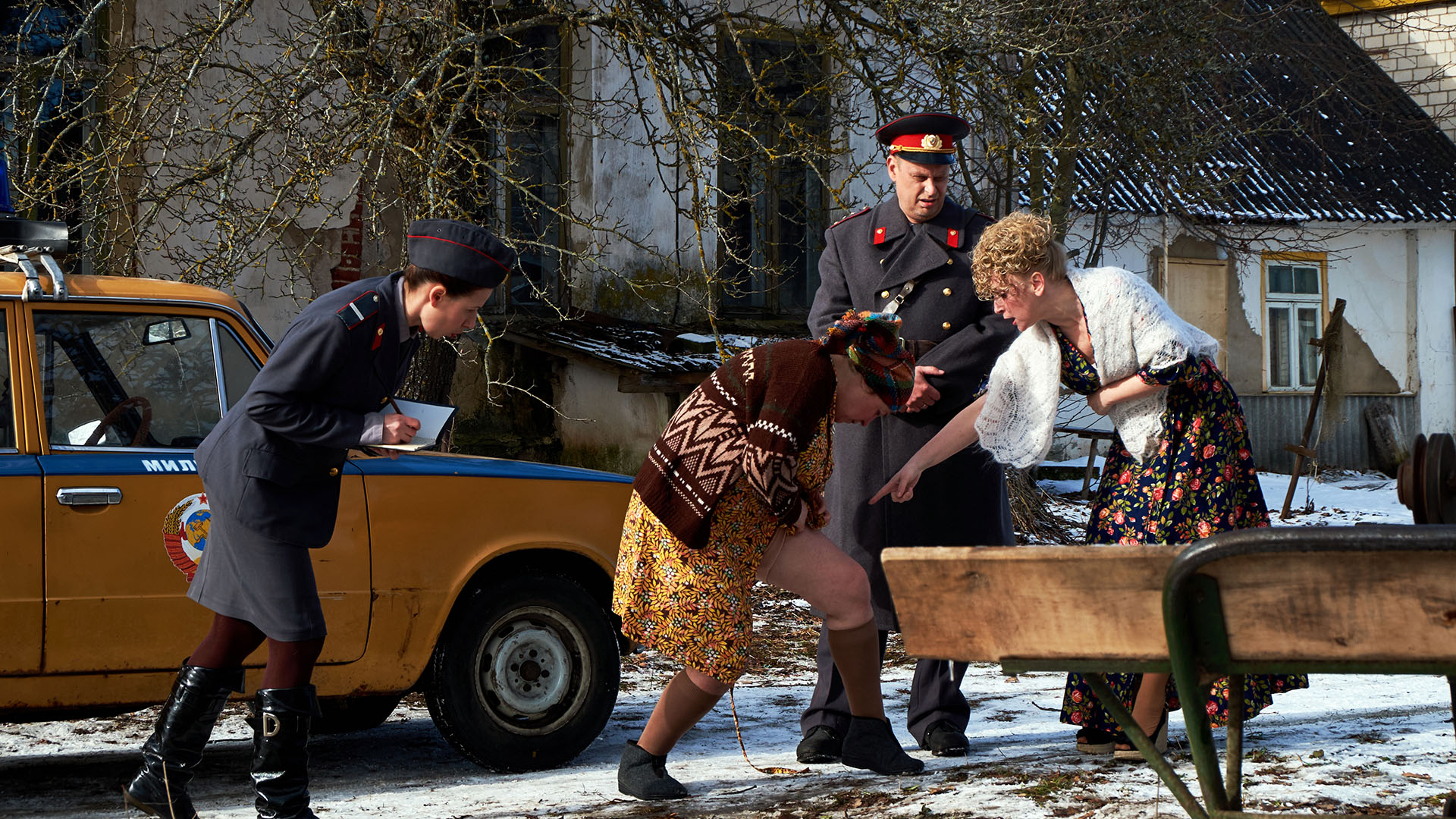
Still from On The Water
Davids: “For me, as an actor, some things become very important in identifying with my character. There was a certain pair of socks. When I put those on; I was Ansis. Even if nobody else could see them. And it proved really important that the silver coin we used was a real coin from that time. We naturally handled it as something very valuable. If it would’ve been a plastic replica of an old coin, maybe the acting wouldn’t be so conveying either.”
Guntis: “And don’t think that viewers will not notice! There is a whole cult of people who spend copious amounts of time spotting the inconsistencies in films. You can find them in the Imdb.com comment sections, but they will not fear to also contact the filmmakers directly, to point out all miniscule, faulty details.
We always have an historical advisor on set, who, among other things, pointed out the fact that Stalin’s shoulder epaulets on a painted portrait did not match his military rank at the time. But there are limits in how many details you are able to research.”
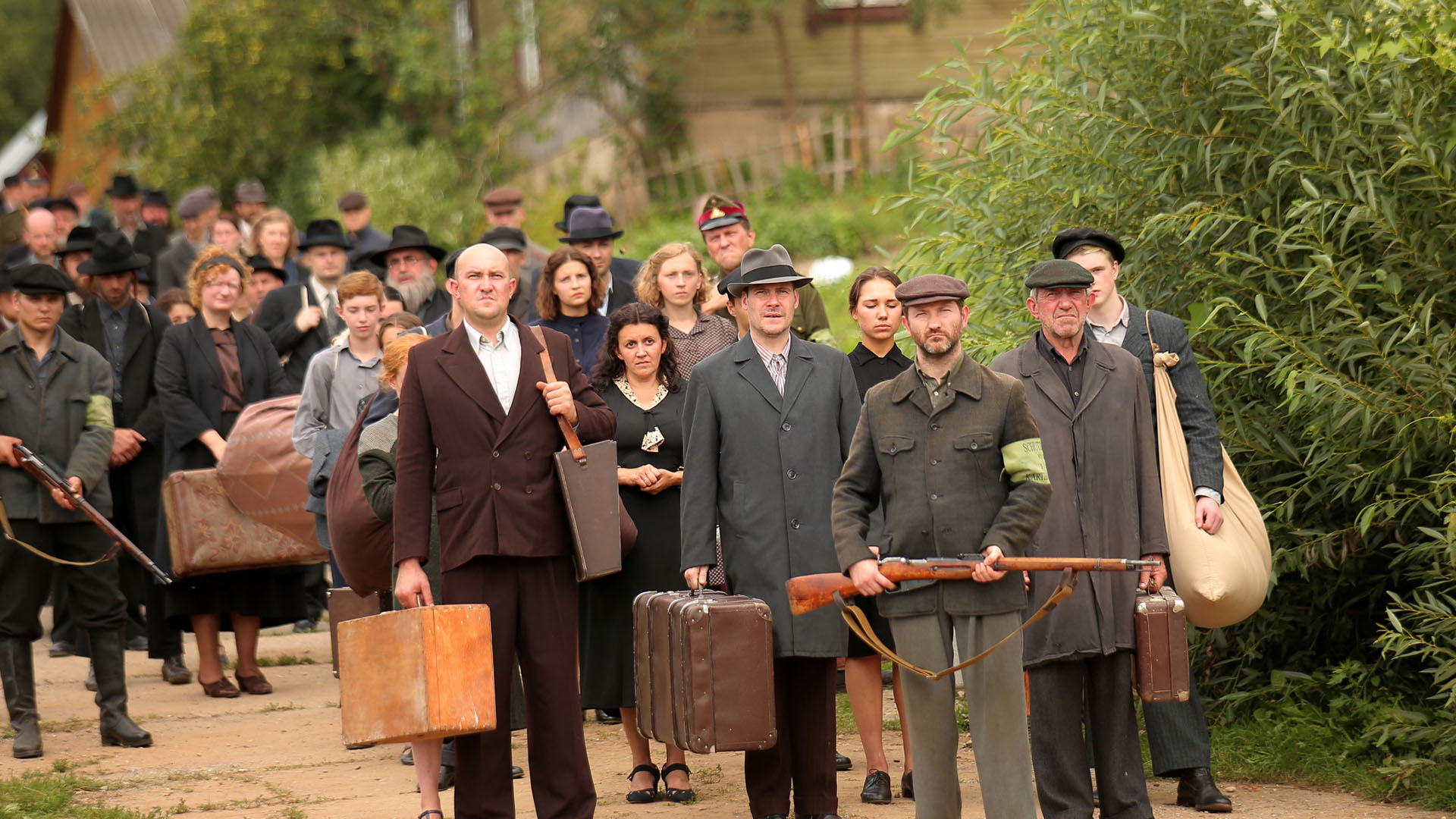
Still from The Sign Painter
Guntis: “I think you need some 30-40 years to really grasp what happened and be able to digest it and turn the events into a historical film. I tried to do a film about the 90’s, but it didn’t work out yet, it felt too cliché. You need more time to draw conclusions.
Lauri: “Although Goodbye, Soviet Union is very closely based on my personal experiences and focuses on this subjective impression, I still had to wait for a period of 20 years to get some distance. I needed to digest.
In general, I think right now the time has come to portray the 80’s as a historical period. You see this era as a background to many films and series at the moment. Take Stranger Things. Although, I feel it’s a sexified version of the eighties. At least; I remember that time being uglier…”

Still from Goodbye, Soviet Union
Lauri: “Some countries are always dry-cleaning their past. Like Russia. I think that such an approach only makes you go around in circles, because you’re not digesting things, not learning from past mistakes and pains.”
Guntis: “In Latvia, many historical themes are yet to be discussed. Like the Holocaust in our own country. Same goes for the Soviet times and the ways in which Latvia cooperated with the communists: still a taboo subject.
I believe it’s important to discuss these events. Making films is not only about entertaining, but also about addressing important issues.”